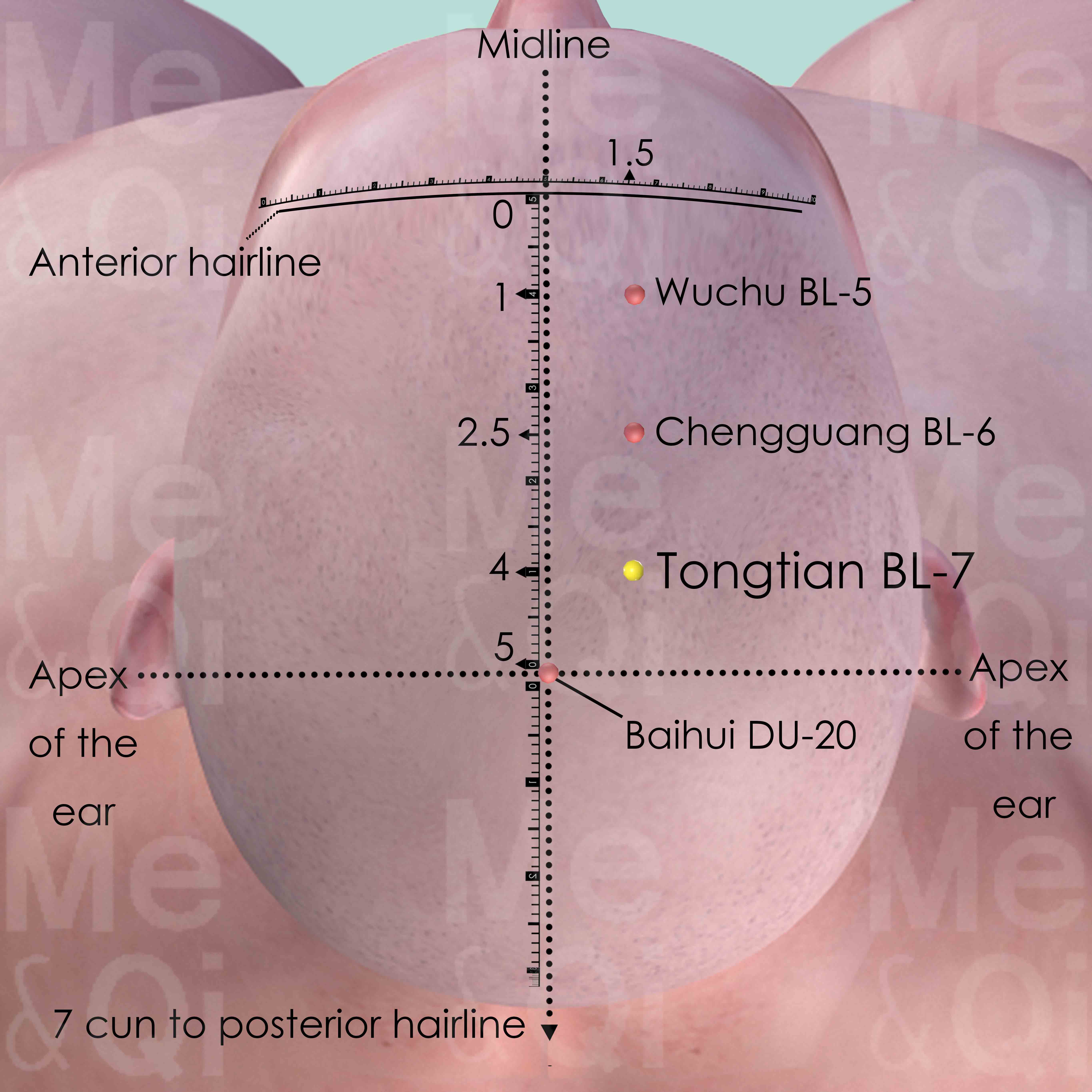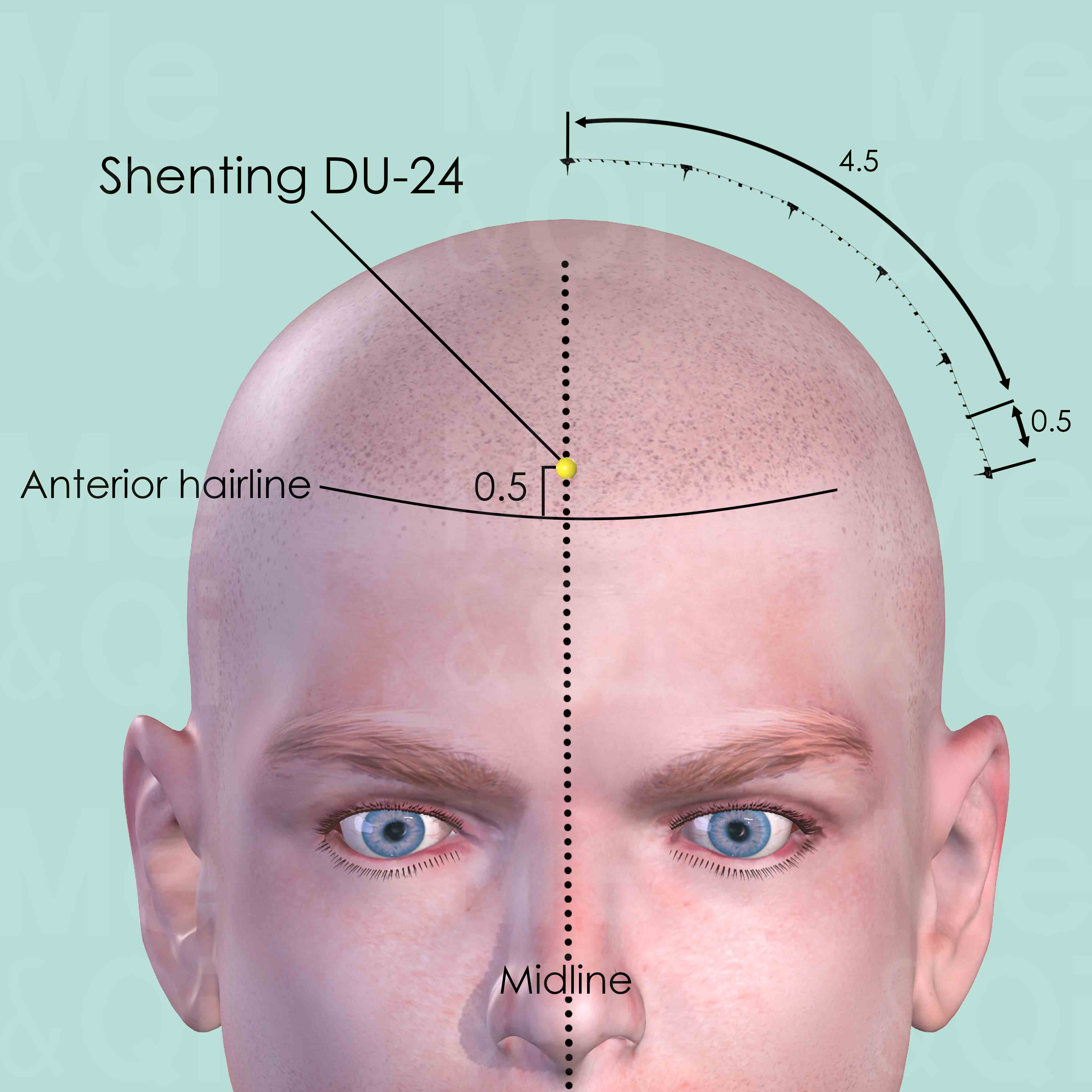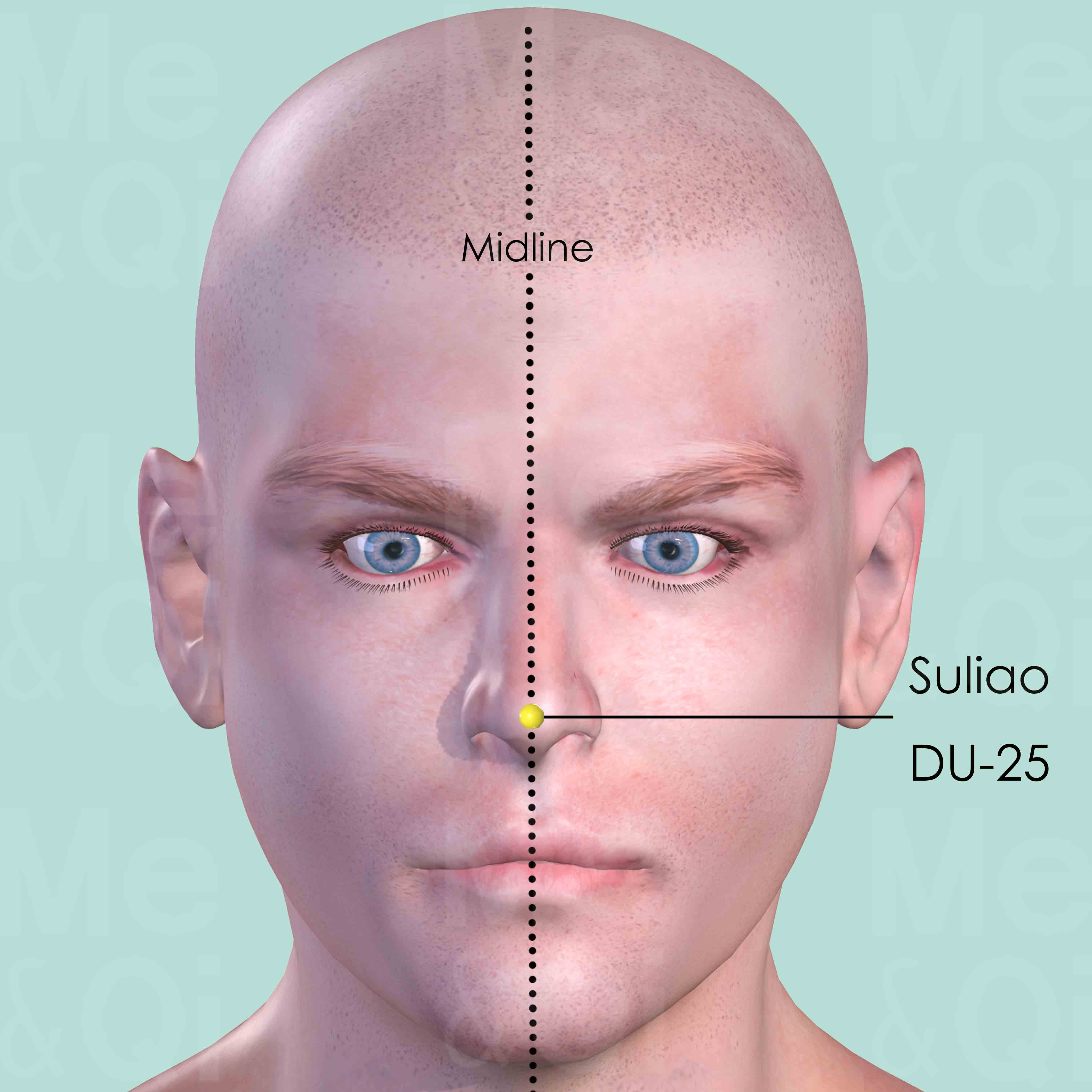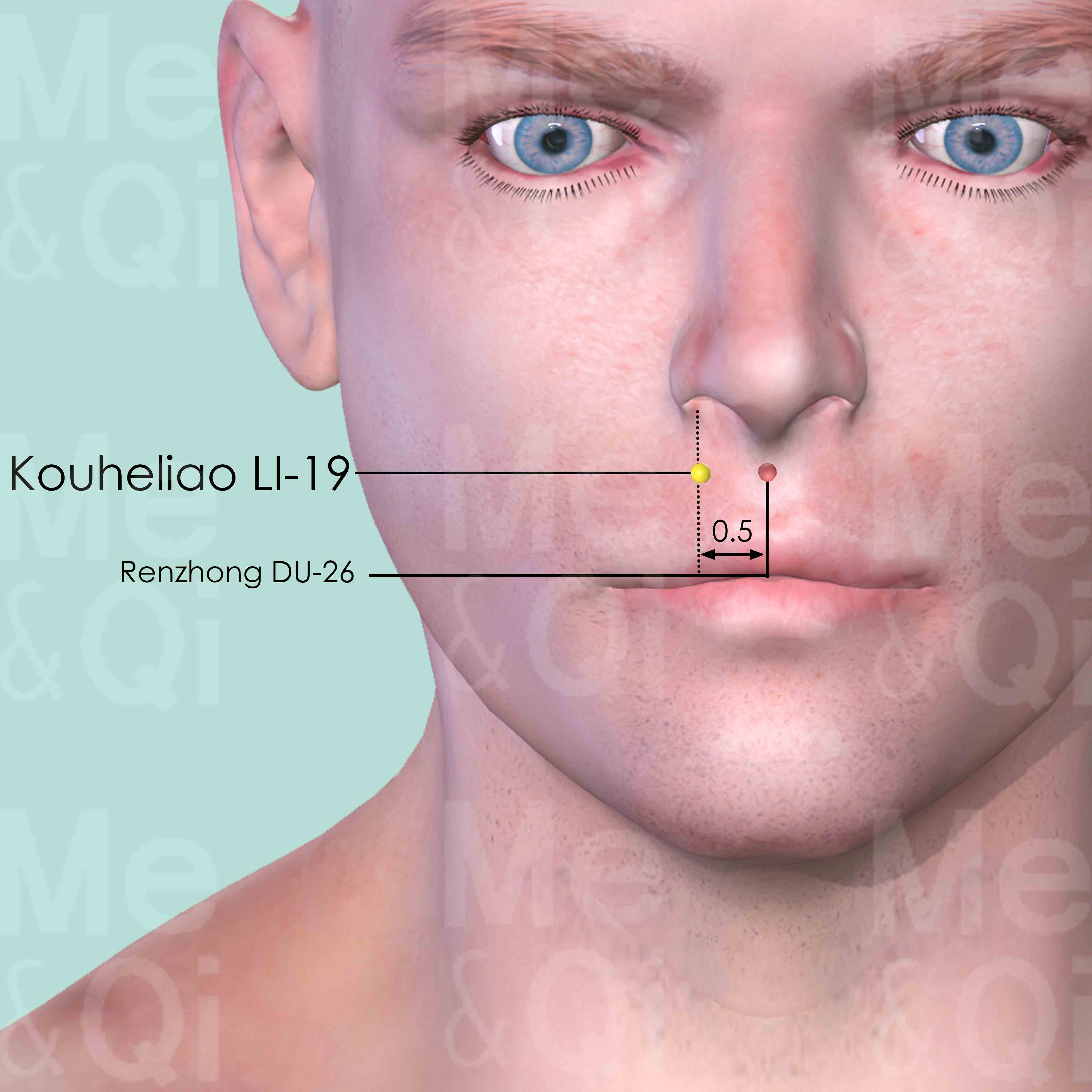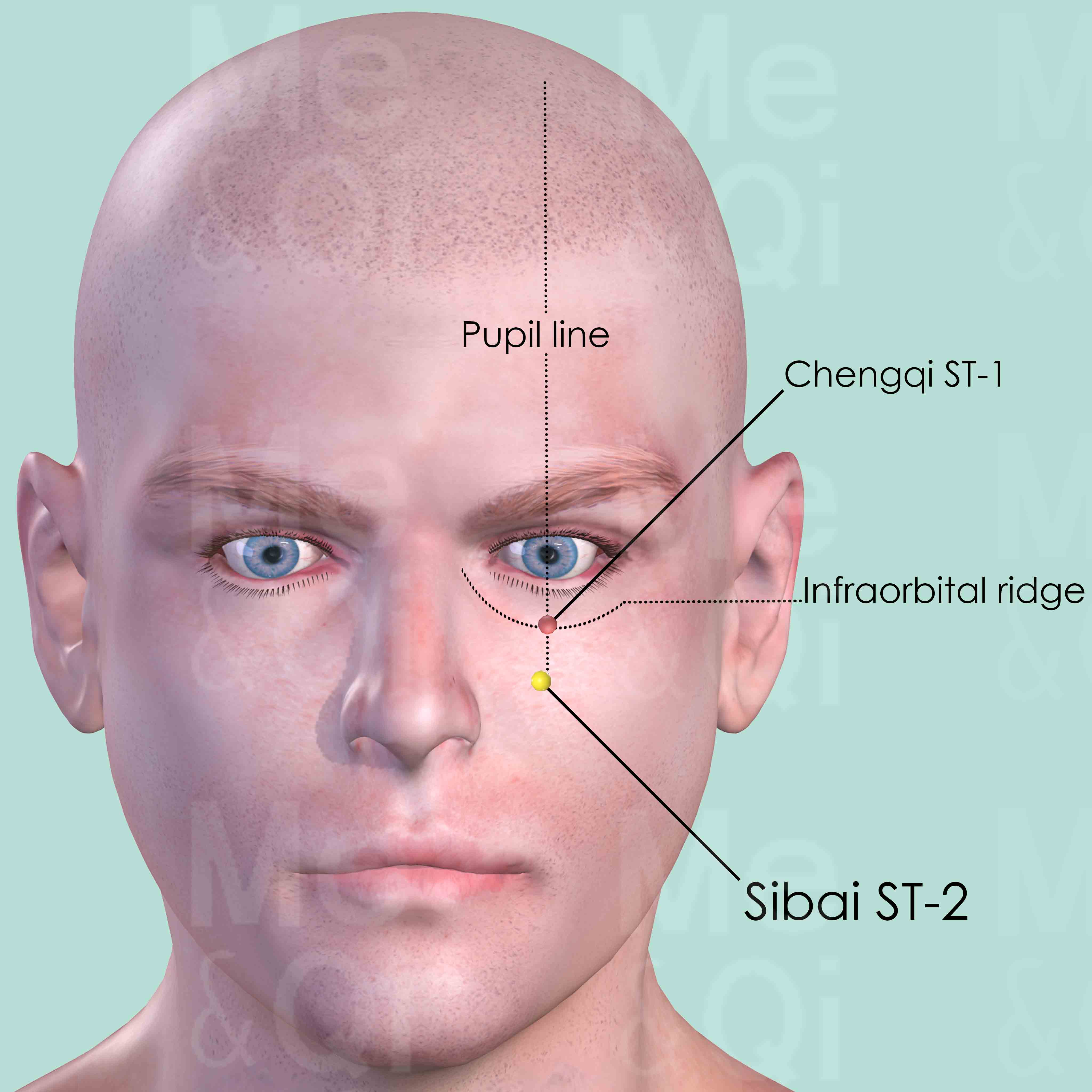Rhinitisaccording to TCM
Symptom family: Nasal Disorders and Symptoms
Sub-symptom(s): Hay Fever Acute Rhinitis Chronic Rhinitis Atrophic Rhinitis
Root Causes of Rhinitis in TCM
Explore below more details about what might cause Rhinitis according to TCM.
- By Syndrome
- Cold
Cold
In TCM "Cold" as a pattern of disharmony refers to a specific type of imbalance within the body's systems, often linked to a deficiency or weakness. It's not about feeling physically cold or having a common cold, but rather a metaphorical description of certain symptoms and underlying conditions. When a TCM practitioner says someone suffers from "Cold," it usually implies that the body's Yang energy, which is warm and active, is insufficient or overpowered by Yin energy, which is cool and passive. Symptoms of Cold in TCM can include a general feeling of coldness, cold limbs, pale complexion, low energy, slow metabolism, and a preference for warmth. ... see more
Cold Patterns That Can Lead to Rhinitis
| Pattern Name | Relevant Symptoms | Relevant Formulas |
|---|---|---|
| Empty-Cold | Nasitis, Chills, Cold extremities, Pale face, Absence of thirst, Low energy, Perspiration, Diarrhea, Clear urination, Frequent urination... see more | Huang Qi Jian Zhong Tang | Da Jian Zhong Tang | Ban Liu Wan |
TCM Herbal Formulas for Rhinitis
Explore below some TCM herbal formulas used to address rhinitis, organized by cause and by formula type.
- By Cause
- By Formula Type
- Cold
- Formulas that clear wind-Cold
- Formulas that warm the middle and dispel cold
- Formulas that tonify qi
- Formulas that dredge and disperse external wind
- Formulas that clear heat from the organs
- Formulas that warm and open sensory orifices
- Formulas that warm and purge
- Formulas that clear wind-Heat
- Formulas that harmonize liver-Spleen
- Formulas that secure irregular uterine bleeding and stop vaginal discharge
- Formulas that warm interior cold
- Formulas that clear exterior disorders with interior deficiency
- Formulas that harmonize lesser yang-warp disorders
- External formulas for external disorders
- Formulas that warm yang and tonify
Top Formula for Cold:
Huang Qi Jian Zhong Tang
Suitable for Cold patterns that may cause rhinitis, such as Empty-Cold
Learn moreAll Formulas Recommended for Rhinitis Caused by Cold
| Formula | Patterns Suitable For |
|---|---|
| Huang Qi Jian Zhong Tang | Empty-Cold |
| Da Jian Zhong Tang | Empty-Cold |
| Ban Liu Wan | Empty-Cold |
Formulas that warm the middle and dispel Cold
These formulas are suitable for some rhinitis-causing patterns like Empty-Cold.
One such formula is Huang Qi Jian Zhong Tang, with milkvetch root as a key herb.
Other formulas of this category are listed in the table below.
All "formulas that warm the middle and dispel cold" recommended for rhinitis
| Formula | Patterns Suitable For (if applicable) |
|---|---|
| Huang Qi Jian Zhong Tang | Empty-Cold |
| Da Jian Zhong Tang | Empty-Cold |
| Li Zhong Wan | Not applicable |
Formulas that warm and purge
These formulas are suitable for some rhinitis-causing patterns like Empty-Cold.
One such formula is Ban Liu Wan, with sulfur as a key herb.
Formulas that clear Wind-Cold
Rhinitis can be treated by these formulas when it stems from external pathogenic influences characterized by cold and wind symptoms.
One such formula is Ma Huang Tang, with ephedra as a key herb.
Other formulas of this category are listed in the table below.
All "formulas that clear wind-Cold" recommended for rhinitis
| Formula | Patterns Suitable For (if applicable) |
|---|---|
| Ma Huang Tang | Not applicable |
| Ge Gen Tang | Not applicable |
| Gui Zhi Tang | Not applicable |
| Xiao Qing Long Tang | Not applicable |
Formulas that tonify Qi
Rhinitis can be treated by these formulas if it results from Qi deficiency, necessitating treatments that boost the body's vital energy.
One such formula is Bu Fei Tang, with ginseng as a key herb.
Other formulas of this category are listed in the table below.
All "formulas that tonify qi" recommended for rhinitis
| Formula | Patterns Suitable For (if applicable) |
|---|---|
| Bu Fei Tang | Not applicable |
| Yu Ping Feng San | Not applicable |
| Bu Zhong Yi Qi Tang | Not applicable |
Formulas that dredge and disperse External Wind
Rhinitis can be treated by these formulas when it results from external wind invasion disrupting the body's surface and normal function, requiring wind-dispersing actions.
One such formula is Cang Er Zi San, with cocklebur fruit as a key herb.
Other formulas of this category are listed in the table below.
All "formulas that dredge and disperse external wind" recommended for rhinitis
| Formula | Patterns Suitable For (if applicable) |
|---|---|
| Cang Er Zi San | Not applicable |
| Xin Yi San | Not applicable |
| Chuan Xiong Cha Tiao San | Not applicable |
Formulas that clear Heat from the Organs
Rhinitis can be treated by these formulas if it stems from an excess heat condition in specific organs, leading to internal disharmony.
One such formula is Long Dan Xie Gan Tang, with chinese gentian as a key herb.
Other formulas of this category are listed in the table below.
All "formulas that clear heat from the organs" recommended for rhinitis
| Formula | Patterns Suitable For (if applicable) |
|---|---|
| Long Dan Xie Gan Tang | Not applicable |
| Xin Yi Qing Fei Yin | Not applicable |
Formulas that warm and open sensory orifices
Rhinitis can be treated by these formulas when it is due to cold affecting the sensory orifices, requiring warming and opening actions.
One such formula is Su He Xiang Wan, with styrax resin as a key herb.
Other formulas of this category are listed in the table below.
All "formulas that warm and open sensory orifices" recommended for rhinitis
| Formula | Patterns Suitable For (if applicable) |
|---|---|
| Su He Xiang Wan | Not applicable |
| Tong Guan San | Not applicable |
Formulas that clear Wind-Heat
Rhinitis can be treated by these formulas if it originates from a wind-heat invasion.
One such formula is Jing Jie Lian Qiao Tang, with japanese catnip as a key herb.
Formulas that harmonize Liver-Spleen
Rhinitis can be treated by these formulas when there's an imbalance between the Liver and Spleen systems, often manifesting as digestive disturbances and emotional fluctuations.
One such formula is Si Ni San, with bupleurum root as a key herb.
Formulas that secure irregular uterine bleeding and stop vaginal discharge
Rhinitis can be treated by these formulas when it arises from disharmony in the female reproductive system, resulting in symptoms like irregular bleeding or abnormal discharge.
One such formula is Wan Dai Tang, with atractylodes rhizome as a key herb.
Formulas that warm Interior Cold
Rhinitis can be treated by these formulas when it is caused by an internal cold condition, needing treatments that warm the body's interior.
One such formula is Gan Cao Gan Jiang Tang, with dried ginger as a key herb.
Formulas that clear Exterior disorders with Interior deficiency
Rhinitis can be treated by formulas that clear Exterior disorders with Interior deficiency if it arises from an external pathogen attacking a body with underlying weakness.
One such formula is Ma Huang Xi Xin Fu Zi Tang, with ephedra as a key herb.
Formulas that harmonize lesser Yang-warp disorders
Rhinitis can be treated by these formulas in cases of imbalances in the lesser Yang (Shao Yang) phase, which often involve alternating hot and cold sensations.
One such formula is Xiao Chai Hu Tang, with bupleurum root as a key herb.
External formulas for External disorders
Rhinitis can be treated by these formulas if it is caused by external factors like wind, cold, or heat leading to symptoms on the body's surface.
One such formula is Bing Peng San, with borneol as a key herb.
Formulas that warm Yang and tonify
Rhinitis can be treated by these formulas if it stems from a depletion of Yang energy, requiring actions that warm and strengthen Yang.
One such formula is Shen Qi Wan, with prepared aconite as a key herb.
Acupoints for Rhinitis
Explore below some acupoints used to address rhinitis, organized by meridian.
- By Meridian
- Bladder Channel
- Governing Vessel
- Large Intestine Channel
- Extra Points: Head and Neck (EX-HN)
- Stomach Channel
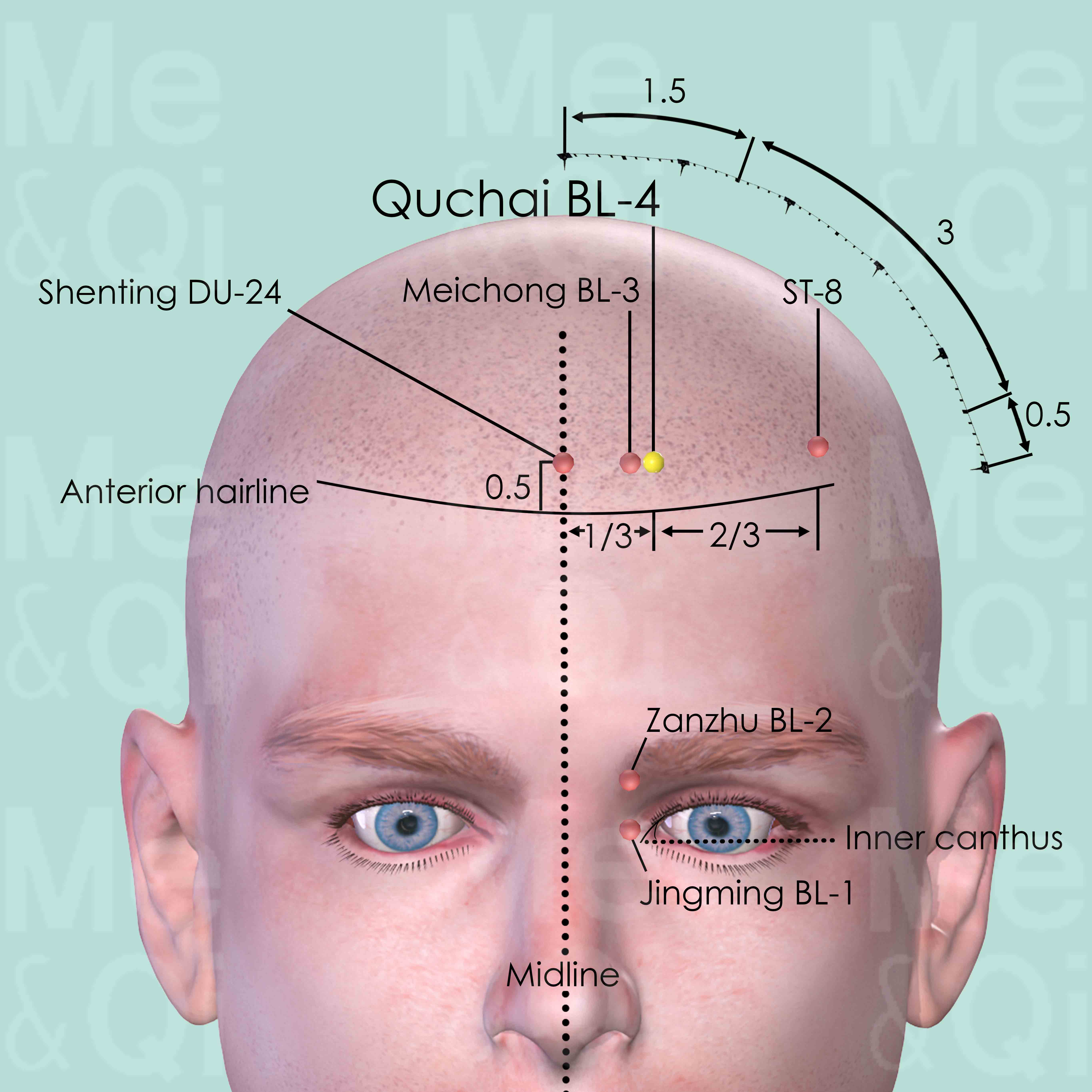
Qucha BL-4
0.5 cun superior to the anterior hairline and 1.5 cun lateral to the anterior midline, at the junction of the medial third and lateral two-thirds of the distance from anterior midline to Touwei ST-8.
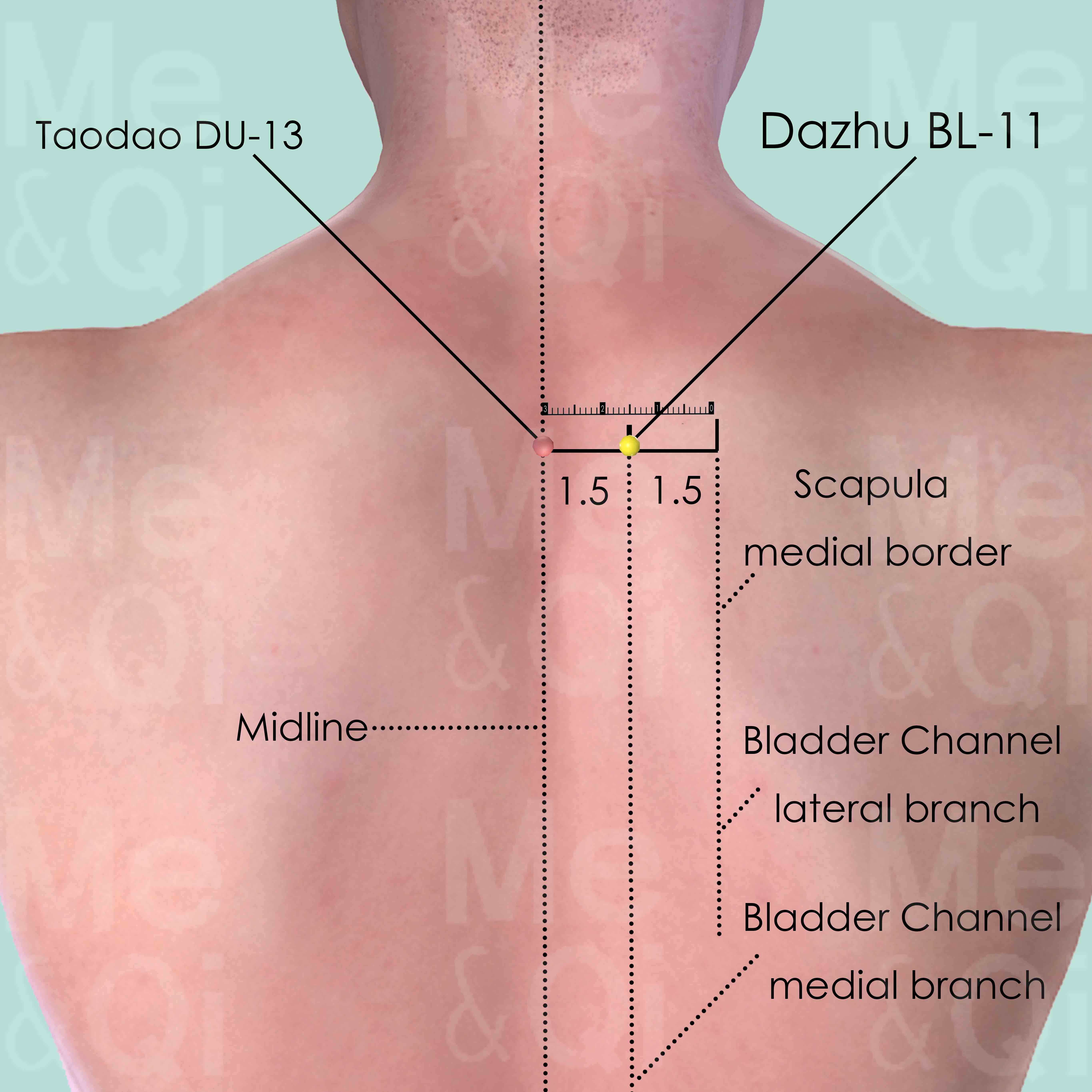
Dazhu BL-11
On the level of the lower border of the spinous process of the 1st thoracic vertebra (T1), 1.5 cun (about 2 finger-breadths) lateral to the posterior midline.
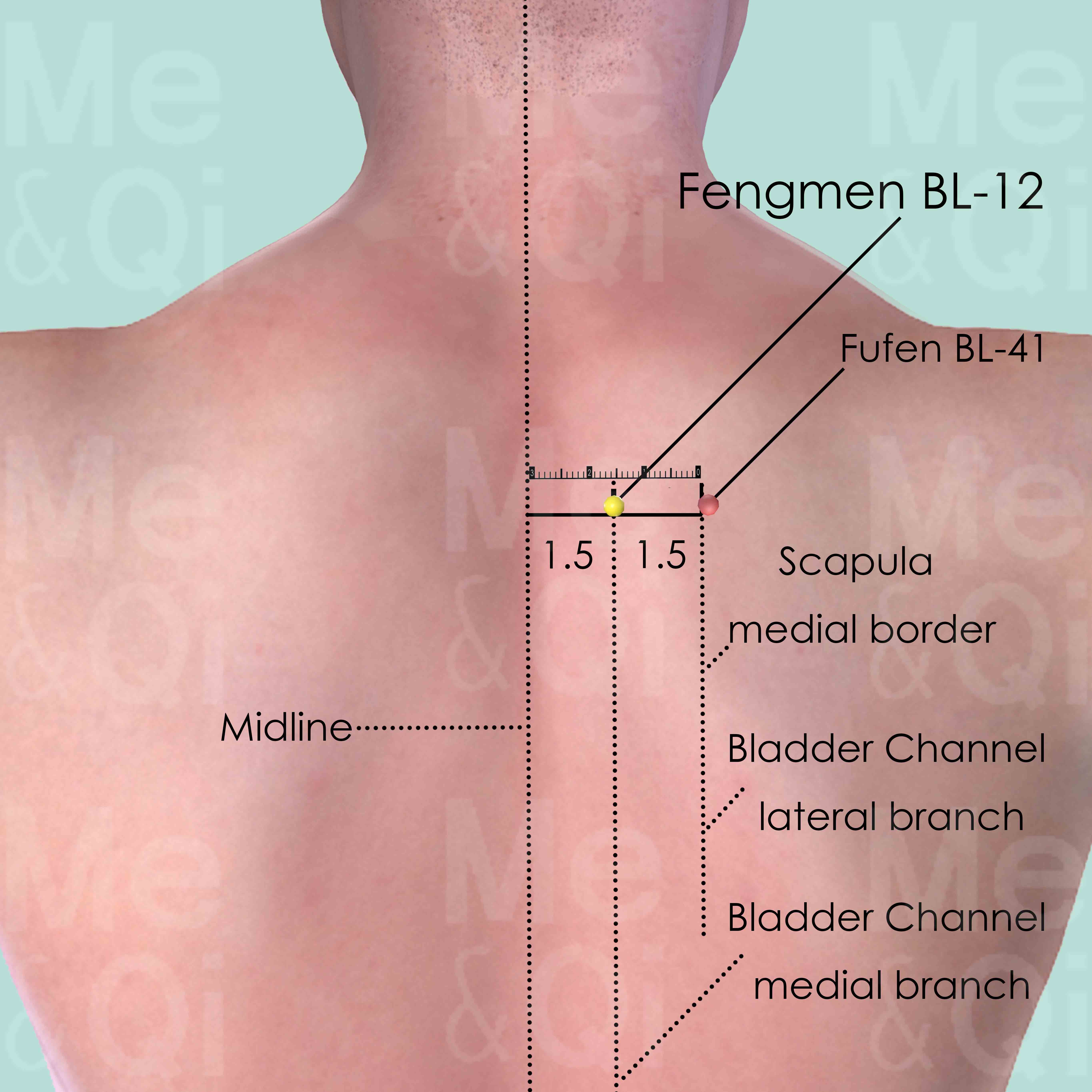
Fengmen BL-12
1.5 cun lateral to the lower border of the spinous process of the 2nd thoracic vertebra (T2).
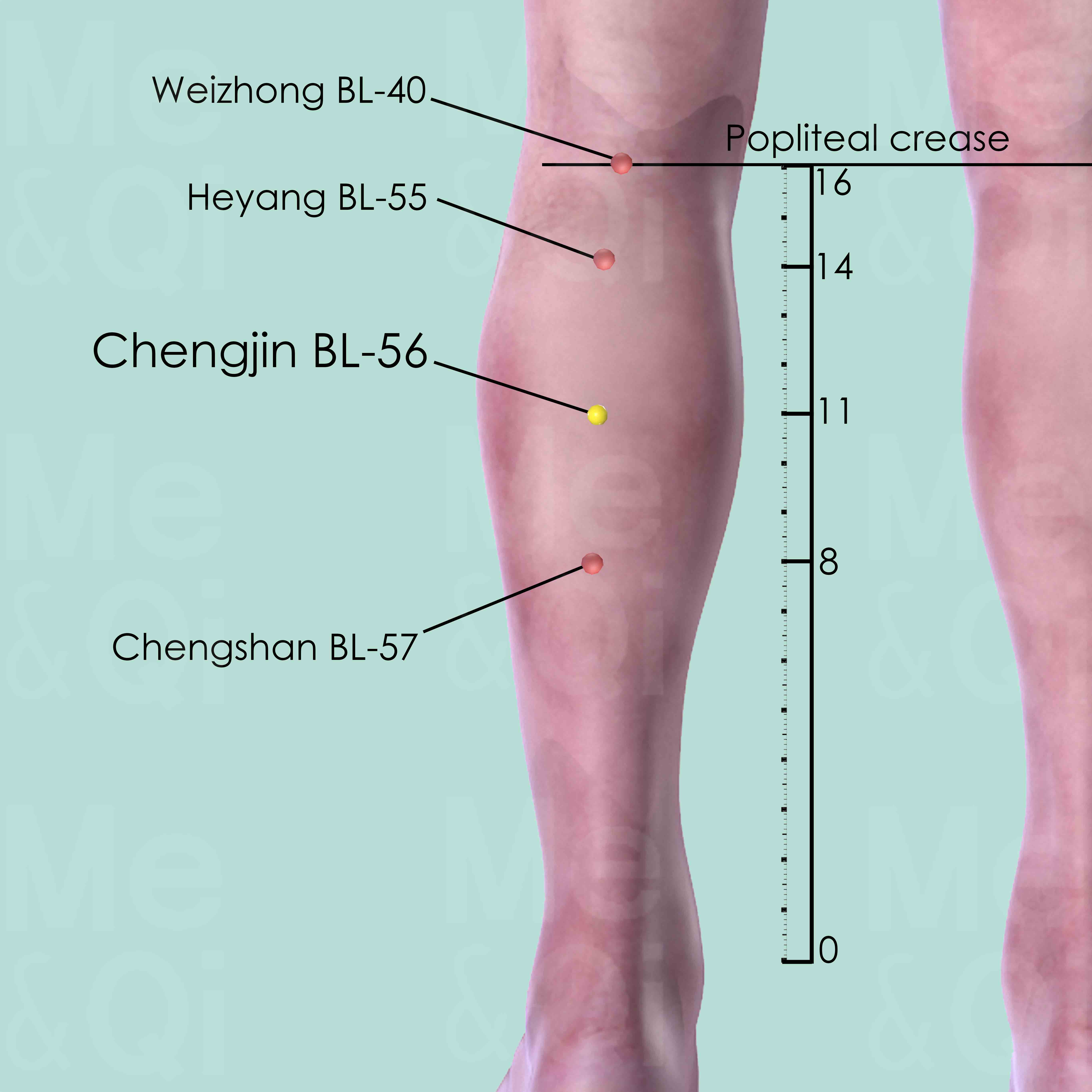
Chengjin BL-56
5 cun inferior to Weizhong BL-40 which is the midpoint of the popliteal crease. In the center of the belly of gastrocnemius muscle, midway between Heyang BL-55 and Chengshan BL-57.
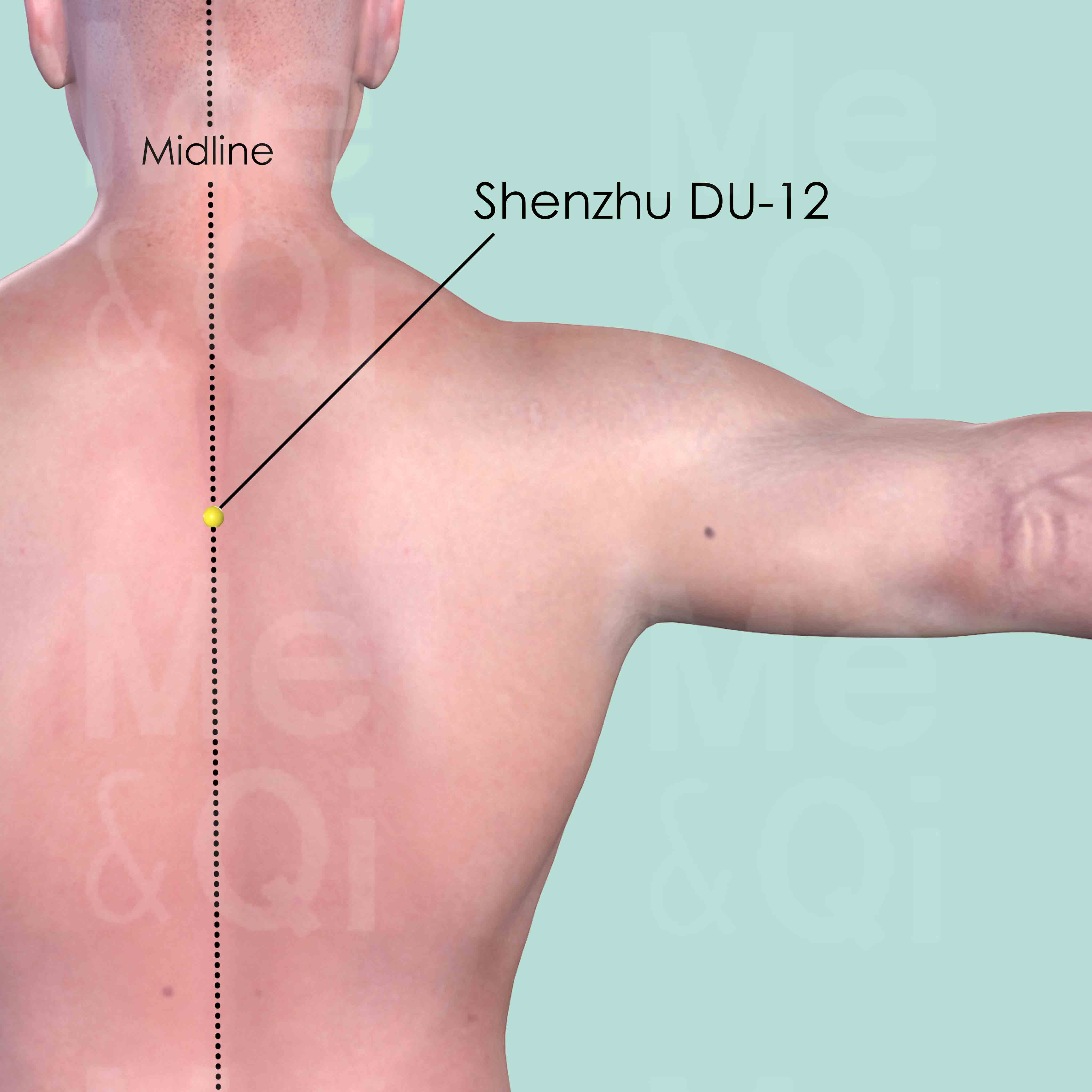
Shenzhu DU-12
On the back midline, in the depression below the spinous process of the 3th thoracic vertebra (T3).
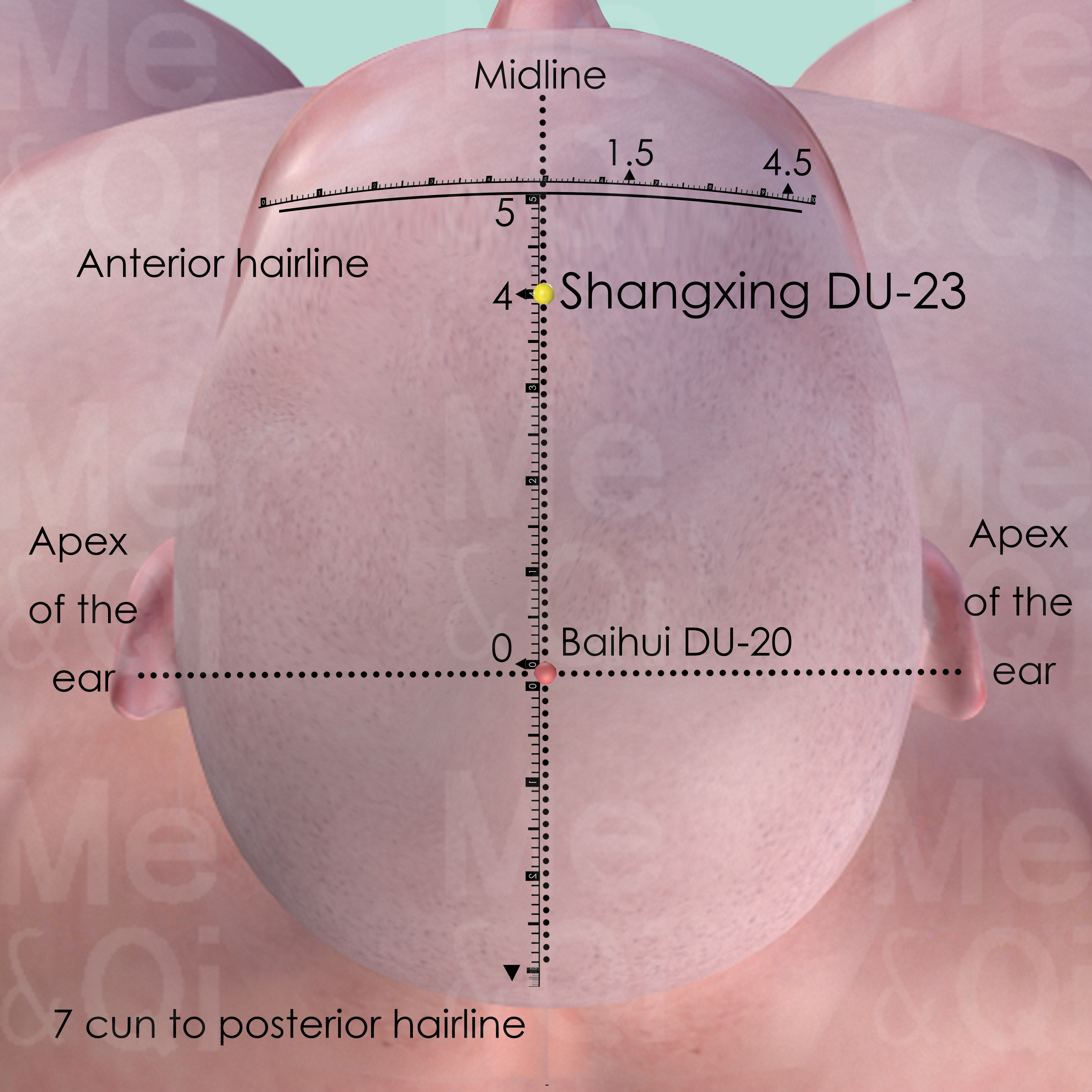
Shangxing DU-23
On the head midline, 1 cun within anterior to the front hairline, 4 cun anterior to Baihui DU-20.
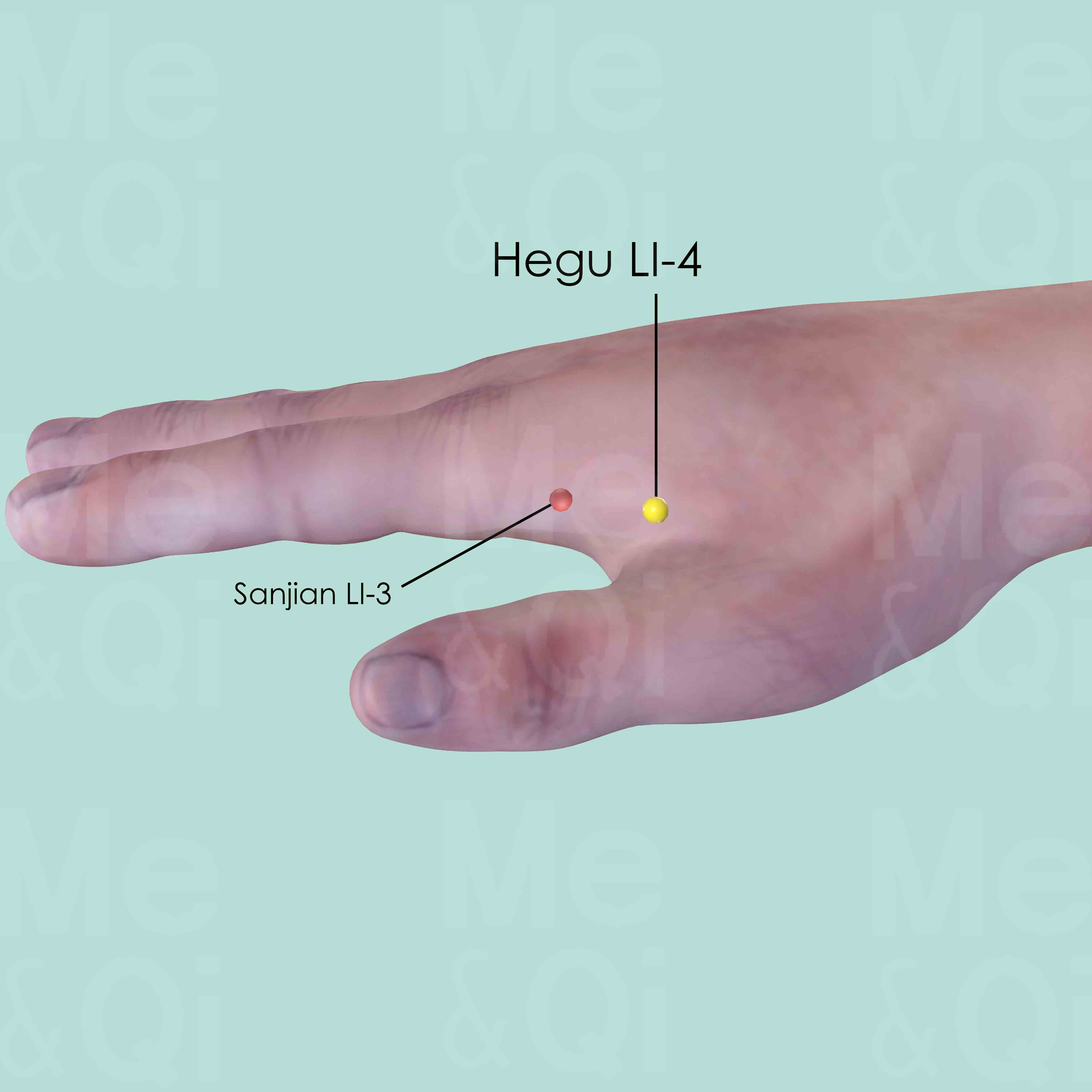
Hegu LI-4
Between the 1st and 2nd metacarpal bones, approximately in the middle of the 2nd metacarpal bone on the radial side.
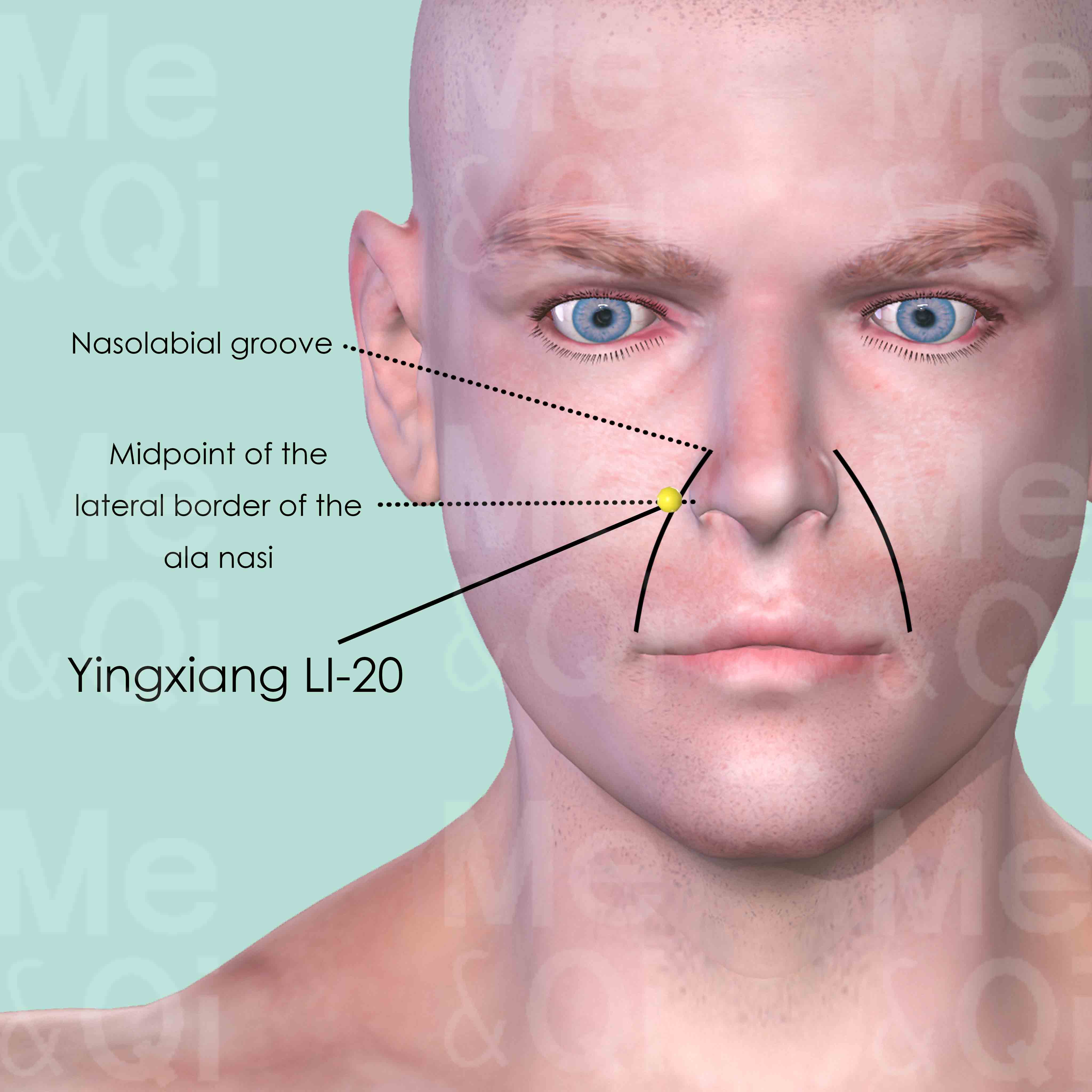
Yingxiang LI-20
In the nasolabrial groove, at the level of the midpoint of the lateral border of ala nasi.
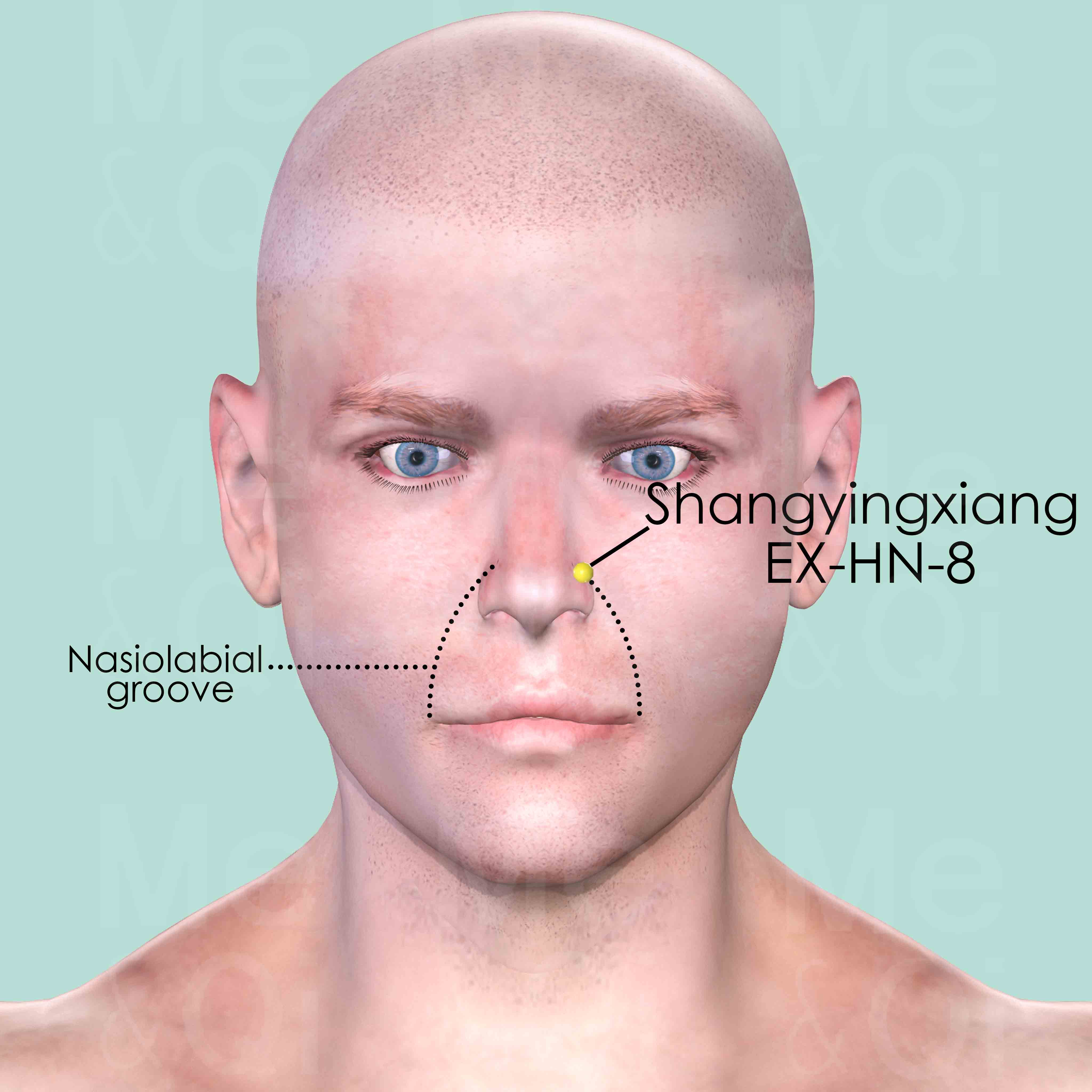
Shangyingxiang EX-HN-8
At the upper end of the nasiolabial groove, at the junction of the maxilla and the nasal cavity.

